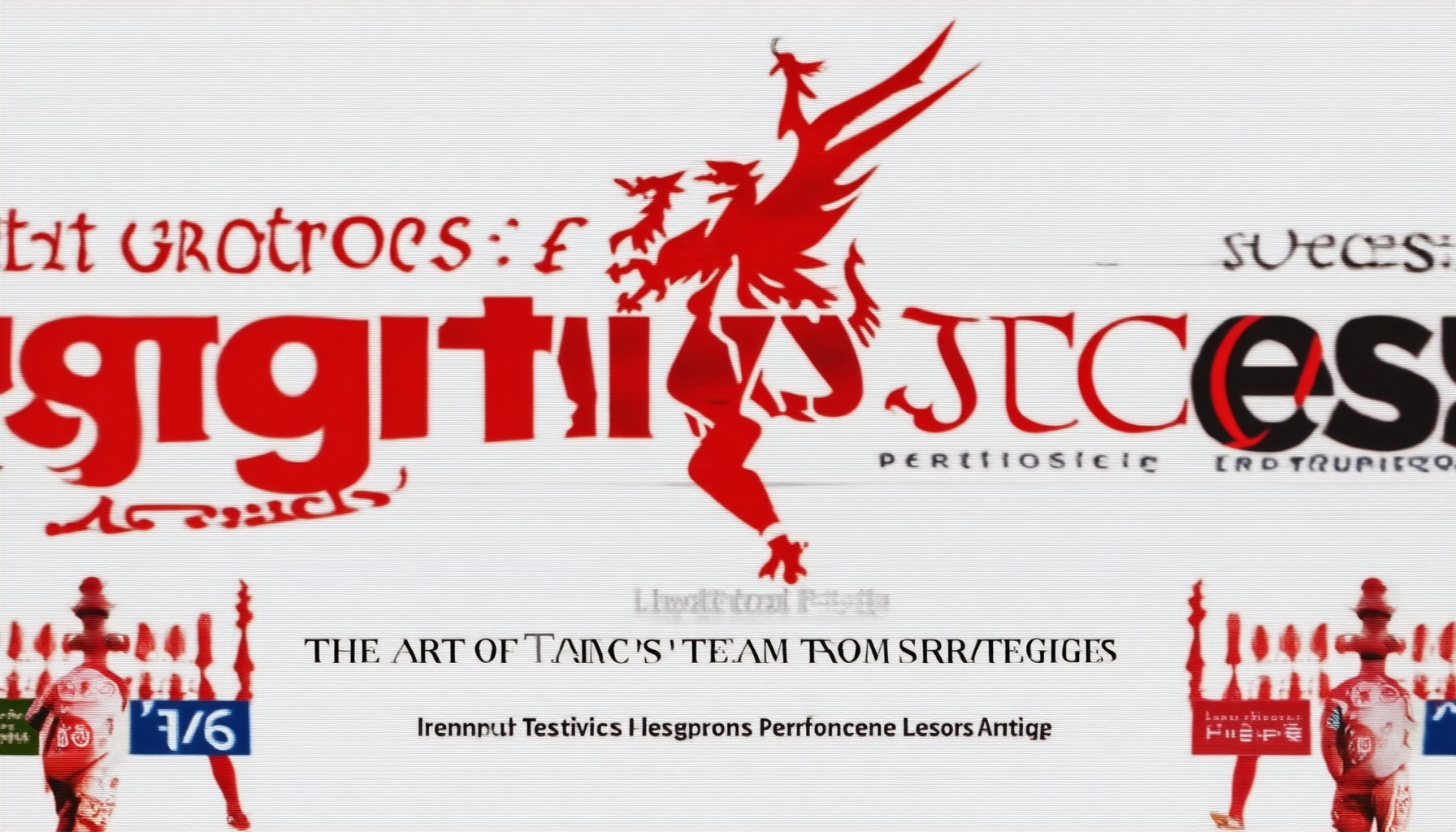Liverpool FC has long been celebrated for its dynamic approach to football, a strategy that has consistently delivered success on the pitch. At the heart of this success lies the concept of “Anfield team strategies,” a unique blend of tactical innovation, teamwork, and mental strength that has defined the club’s journey. From the iconic Anfield atmosphere to the meticulous planning behind Anfield Road renovations, these strategies have not only shaped Liverpool’s playing style but also fostered a culture of excellence that extends far beyond the football field. This article delves into the evolution of Liverpool’s tactics, the legacy of Anfield Road, and how these principles can be applied in diverse settings, offering valuable insights for leaders and organizations seeking to unlock their full potential.
Key Takeaways
- Innovative Tactics and Fluid Attacks: Arne Slot’s approach emphasizes high pressing and dynamic attacking play, driving team success.
- High-Pressing Strategies: Slot’s teams excel at quick transitions, disrupting opponents and creating decisive moments.
- Balanced Defense and Counterattacks: His defensive organization ensures stability, turning defense into a springboard for counter-attacks.
- Youth Development and Team Spirit: Slot fosters a cohesive unit, nurturing young talent and building strong team morale.
- Adaptable Systems: He seamlessly adjusts strategies, ensuring his teams remain competitive against varied opponents.
- Contrasting Styles with Klopp: While Klopp brings intensity and aggression, Slot offers a measured, tactical approach, highlighting their distinct managerial philosophies.
- Possession-Based Play: Hansi Flick’s focus on controlling the game through precise passing and spatial awareness elevates Liverpool’s performance.
- Rapid Transitions and Clinical Finishing: Flick’s teams excel at swift attacks, capitalizing on defensive lapses with pinpoint accuracy.
- Defensive Compactness: His defensive setup minimizes space, crucial for limiting opponents’ chances and maintaining defensive solidity.
- Leadership and Adaptation: Flick inspires resilience and teamwork, adapting strategies to overcome challenges and integrate young players seamlessly.

What Are Liverpool’s Tactics?
Liverpool’s tactics under manager Jürgen Klopp have evolved significantly since his arrival in 2015, blending creativity, high pressing, and fluid positional interchange to dominate English football. The club’s style is characterized by quick transitions, spatial awareness, and a relentless attacking ethos.
Tactical Key Points:
- High Pressing Style: Klopp’s side prioritizes high-intensity pressing, forcing opponents to play quickly and make mistakes. This approach limits space and disrupts opposition play, allowing Liverpool to transition smoothly into counterattacks.
- 4-2-3-1 Formation: While the team adapts based on opponents, the default setup is often a flexible 4-2-3-1. This formation provides defensive stability while maintaining offensive width and overlap. Players like Fabinho and Thiago Alcântara excel in this system due to their ability to screen the defense and pivot into attack.
- Wing Play and Inside Forward: Liverpool often uses wide players like Andy Robertson and Sadio Mané to overload the wings, creating width and delivering dangerous crosses. The central attacker (often a No.10 like Mohamed Salah or Naby Keita) drifts into midfield to influence play and carry the ball forward.
- Set-Piece Expertise: Klopp’s teams are renowned for their ability to exploit set-pieces, thanks to the physicality of players like Virgil van Dijk and the composure of leaders like Jordan Henderson in dead-ball situations.
- Defensive Stability: Despite their attacking flair, Liverpool places a strong emphasis on defensive organization. The full-backs are often instructed to bomb forward in overlapping runs, but they must also track back to prevent counterattacks.
Key Players Influencing Tactics:
- Fabinho: A versatile midfielder capable of sitting deep or joining attacks, Fabinho’s ability to adapt to multiple roles is crucial to Liverpool’s fluid system.
- Thiago Alcântara: His presence in midfield provides composure and passing quality, allowing Liverpool to control games and break down defenses.
- Andy Robertson: Known for his attacking contributions and work rate, Robertson thrives in Klopp’s high-pressing system.
By combining these elements, Liverpool creates a dynamic and unpredictable attacking force while maintaining a solid defensive foundation. Their ability to adapt to different opponents and formations ensures they remain a formidable side in European competitions.
What Makes Anfield So Special?
Anfield is renowned for its rich history, passionate fanbase, and iconic football stadium, which serves as the spiritual home of Liverpool FC. Here’s what makes this area truly unique:
The Legend of Anfield
Anfield’s significance dates back to 1882 when Everton FC played their first game there. Over the years, it has become synonymous with Liverpool FC, hosting nearly every Premier League title win since 1980. The stadium itself is a historic venue, with its famous Kop Stand offering one of the most electric atmospheres in football.
A Passionate Fanbase
The Anfield area is deeply rooted in football culture, with generations of families passing down their loyalty to Liverpool FC. Matches here are celebrated with unparalleled enthusiasm, creating a unique bond between the players, the club, and the community.
Iconic Structures and Landmarks
Anfield is surrounded by architectural marvels, including the world-famous Liver Building, a symbol of the city’s resilience and innovation. These landmarks complement the stadium, making the area a must-visit for football enthusiasts and tourists alike.
The Legacy of Great Players
From legends like Steven Gerrard to modern stars like Mohamed Salah, Anfield has been the stage for some of football’s most memorable moments. The success stories of players who have graced these grounds continue to inspire future generations.
The Anfield Experience
Attending a match at Anfield is a quintessentially British experience. The atmosphere, the chants, and the camaraderie among fans create an electrifying environment that is unmatched anywhere in football. The Kop End, in particular, is legendary for its passionate support.
For more insights into Anfield’s rich history and its role in Liverpool FC’s success, explore The Anfield Talk , a dedicated platform for LFC fans.

What Style of Play Does Liverpool Use?
Liverpool’s style of play under manager Jürgen Klopp has been characterized by high-octane transitions, fluid attacking movements, and a relentless pressing game. The team excels in quickly transitioning from defense to attack, utilizing the wings to stretch opponents and create numerical superiority in advanced areas.
- Transition Play: Liverpool’s ability to rapidly switch from defense to attack is a hallmark of their style. Their full-backs, often overlapping, deliver dangerous crosses into the box, while central defenders push forward to join attacks.
- Attacking Style: The Reds prefer a fast, direct style of play, often bypassing the midfield with long balls from the backline. Their attackers, like Mohamed Salah and Sadio Mané, thrive in high-intensity periods, making quick decisions in tight spaces.
- Defensive Strategy: While not traditionally known for a defensive style, Liverpool employs a high-line press to disrupt opponents’ build-up play. Their center-backs are often seen stepping into midfield to win battles and support attacks.
- Tactical Evolution: Over time, Liverpool has incorporated more possession-based approaches, particularly in deeper fixtures. This shift has allowed them to control games and exploit gaps left by opponents who focus on defense.
The combination of Klopp’s philosophy, tactical awareness, and player recruitment has made Liverpool a dominant force in English football, blending creativity, work rate, and organizational discipline to achieve success on the pitch.
For more detailed insights into Liverpool’s tactics and player performances, visit The Anfield Talk , a dedicated platform for LFC analysis and fan engagement.

Arne Slot Style of Play
The Arne Slot style of play refers to the tactical approach employed by Arne Slot, a prominent football manager known for his innovative and attacking philosophies. This style is characterized by its emphasis on high pressing, fluidity in attack, and a balanced defensive organization.
Formation and Structure
Slot typically utilizes a 4-3-3 formation, which allows his team to dominate numerically in central areas while maintaining width and overlap in defense. The formation is designed to press high up the pitch, forcing opponents to defend in compact zones, which creates opportunities for quick counterattacks.
High Pressing and Midfield Dominance
A key feature of the Arne Slot style is the high press. His teams are known for quickly closing down space and disrupting opponents’ build-up play. This approach often leads to quick transitions and fast breaks, exploiting defensive gaps created by aggressive marking.
Attacking Play and Winger Role
Slot’s style places a strong emphasis on fluidity in attack, particularly with his wingers. They are often given freedom to roam and interchange positions, creating overlaps and providing width. This fluidity allows for intricate link-ups and combinations, making it difficult for defenders to handle.
Defensive Organization
Despite his attacking tendencies, Slot’s teams are well-organized defensively. He relies on disciplined marking and positional awareness to limit opponents’ chances. The use of overlapping full-backs helps maintain defensive shape while providing width in attack.
Youth Development and Team Unity
Slot is also known for his emphasis on developing young players and fostering a strong team spirit. He believes in creating a cohesive unit where every player understands their role and works collectively towards the same goals.
Philosophical Approach
At its core, the Arne Slot style is about maximizing potential and creating a dynamic, adaptable team. He prioritizes versatility and adaptability, allowing his teams to adjust during games based on the opposition and conditions.
This style has proven successful at various levels, from youth academies to senior teams, earning Slot a reputation as a forward-thinking manager who consistently produces competitive and entertaining sides.
Is Arne Slot Similar to Klopp?
Arne Slot and Jurgen Klopp are two distinct figures in football, each bringing their unique approach to the game. While they share a passion for football, their styles and philosophies differ significantly.
- Coaching Style: Klopp is known for his high-energy, attacking-oriented approach, often referred to as “Heavy Metal Football.” He emphasizes fast-paced play and relentless pressure on opponents. In contrast, Slot is known for his calm demeanor and tactical precision, focusing on building solid defenses and maintaining composure under pressure.
- Personality: Klopp is a fiery and passionate leader who connects deeply with his players. He is known for his emotional celebrations and unwavering belief in his team. On the other hand, Slot is more reserved and composed, often serving as a stabilizing force during challenging moments.
- Football Philosophy: Klopp’s philosophy revolves around creating an overwhelming attacking force, prioritizing goals and fluidity in possession. Slot, however, tends to adopt a more balanced approach, often prioritizing defensive solidity and counterattacks.
- Attention to Detail: Both coaches are highly regarded for their ability to analyze opponents and prepare effectively, but Klopp’s focus is often on creating a dynamic and exciting brand of football. Slot, while equally detail-oriented, is known for his ability to adapt systems and strategies based on the opposition.
While they share a deep love for the game and a desire to succeed, Klopp and Slot’s approaches to football are as different as night and day. Klopp brings an infectious energy and aggressive style, while Slot offers a more measured and tactical approach. Both have proven themselves as successful managers, but their legacies will be defined by their unique methods and philosophies.

Hansi Flick
Hansi Flick is the head coach of Liverpool Football Club, known for his innovative and dynamic approach to football. His tactics have significantly influenced the club’s performance, blending possession-based play with high-intensity pressing and quick transitions.
His Playing Style
Flick’s philosophy revolves around controlling the game through possession and exploiting defensive gaps. He emphasizes quick ball circulation, spatial awareness, and fluid movements, which aligns perfectly with Liverpool’s identity as a possession-oriented team.
Tactical Approach
One of Flick’s hallmark tactics is the use of a flexible 4-3-3 formation, which allows him to dominate possession while maintaining balance. The midfield trio often presses high to disrupt opponents’ build-up phases, while the wide attackers push forward to overload defensive sides.
Attacking Play
Flick’s teams excel at rapid transitions from defense to attack. They employ a high press to win back possession and exploit set-pieces or counter-attacks with precision. Players like Mohamed Salah and Sadio Mané have thrived under his system due to its emphasis on quick decision-making and clinical finishing.
Defensive Strategy
Defensively, Flick prioritizes compactness and quick recovery. His players are trained to recover in numbers and limit space, making it difficult for opponents to create chances. This has been instrumental in Liverpool’s ability to maintain clean sheets and concede fewer goals.
Leadership and Philosophy
Flick’s influence extends beyond tactics. He focuses on building a team ethos centered around resilience, teamwork, and intelligence. His ability to adapt to different opposition styles and integrate young players into the first team has further strengthened Liverpool’s competitive edge.
Conclusion
Hansi Flick’s approach to football is a perfect blend of strategy and creativity. By emphasizing possession, high press, and quick transitions, he has transformed Liverpool into a dominant force in English football once again. His leadership and tactical acumen continue to inspire both players and fans alike.





0 Comments